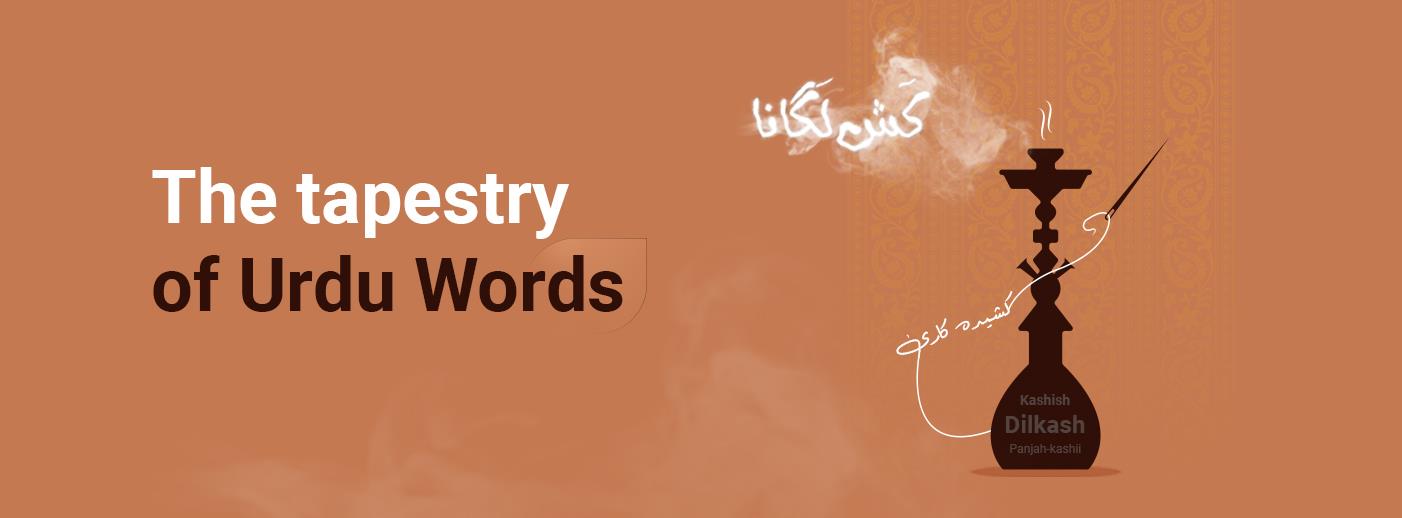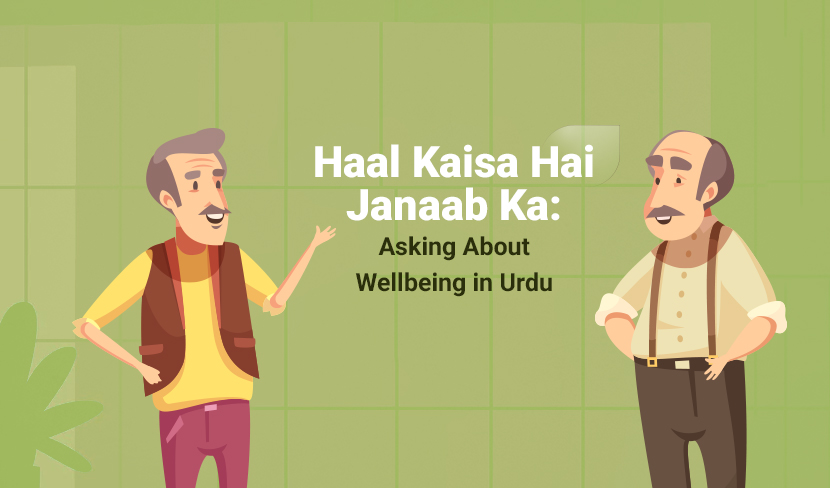زیادہ تلاش کیے گئے الفاظ
محفوظ شدہ الفاظ
کِھسیانی بِلّی کَھمبا نوچے
جسے غصہ آرہا ہو وہ دوسروں پر اپنی جھلاہٹ اتارتا ہے، بے بسی میں آدمی دوسروں پر غصہ اتارتا ہے، شرمندہ شخص دوسروں پر اپنی شرمندگی اتارتا ہے، کمزور کی جھنجھلاہٹ
چَمَنِسْتان
ایسا باغ جہاں پھول کثرت سے ہوں، ایسی جگہ جہاں دور تک پھول ہی پھول اور سبزہ سبزہ نظر آئے، گلزار، گلستان، باغ، پھولوں کا قطعہ، سبز کھیت
The tapestry of Urdu Words

Can we find a connection between رسہ کشی 'rasaa-kashii' (tug of war), پنجہ کشی 'panjah-kashi', and دلکشی 'dil-kashii' (captivating the heart)? Yes, indeed. These words share a common thread - the Persian-origin word 'kash', meaning 'to pull' or 'to draw'.
Rasaa-kashii (رسہ کشی), is the childhood game of tug-of-war where opposing teams pull on a rope with all their might. Here, the meaning is literal - a test of strength and willpower.
Panjah-kashii (پنجہ کشی) extends this idea to a wrestling match of locked fingers, where opponents pull and twist each other's wrists in a contest of endurance. These words show 'kash' in its most primal form: a physical force exerted to overcome resistance.
As we delve deeper, the root word 'kash' has transcended its original meaning to shape words that touch every facet of human life
. 'Kash lagaanaa' کش لگانا is a proverb that means to pull or puff at a cigarette or Huqqa.
'Dilkash' دلکش refers to something that draws or attracts the heart, alluring, lovely, and pleasant.
'Kashish' کشش is another word that means attraction, pull, allurement, or magnetism.
Let's savor a couplet in this context:
kyā kashish husn-e-be-panāh meñ hai
jo qadam hai usī kī raah meñ hai
Jigar Muradabadi
(What enchantment lies in boundless beauty, that every footstep follows the path of the one who embodies it)
Mai-kash میکش
We also find 'kash' in words like 'mey-kash' میکش and 'baadah-kash', which refer to a boozer or drinker in Urdu ghazals.
'Kashida Kaarii' کشیدہ کاری means embroidery, involving pulling and threading silk or yarn through a needle.
Kashida. کشیدہ
Interestingly, kashida' also describes tense situations, like when people say "Aaj kal shehr ke haalaat kashida hain" (Presently, the city's condition is tense).
'Kashmakash' کشمکش
Life's dilemmas are another domain where 'kash' finds expression. The word 'kashmakash' vividly captures the back-and-forth pull of indecision, struggle, and uncertainty. Whether it's a moral quandary or a practical dilemma,
'Mehnat-kash' محنت کش
'mehnat-kash' (محنت کش) is a term that honors laborers and workers. The 'mehnat-kash' are those who endure life's struggles through hard work and perseverance.
Let's revisit the iconic song "vo subh kabhi to aayegi" from the film "phir subh hogi", written by Sahir Ludhianvi:
sansār ke saare mehnat-kash khetoñ se
miloñ se nikleñge
be-ghar be-dar be-bas insāñ
tārīk biloñ se nikleñge
duniyā amn aur ḳhush-hālī ke phūloñ se
sajā.ī jā.egī
vo sub.h hamīñ se aayegi
(The hardworking labourers from all the farms and mills of the world will come forth. The homeless and powerless humans will emerge from their dark abysses. The world will be adorned with flowers of peace and happiness. That dawn will come from us)
As we conclude this journey through words, we realize that the thread of 'kash' weaves a rich tapestry of meanings, connecting games, emotions, and even social commentary.
Delete 44 saved words?
کیا آپ واقعی ان اندراجات کو حذف کر رہے ہیں؟ انہیں واپس لانا ناممکن ہوگا۔





